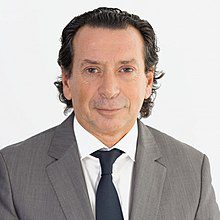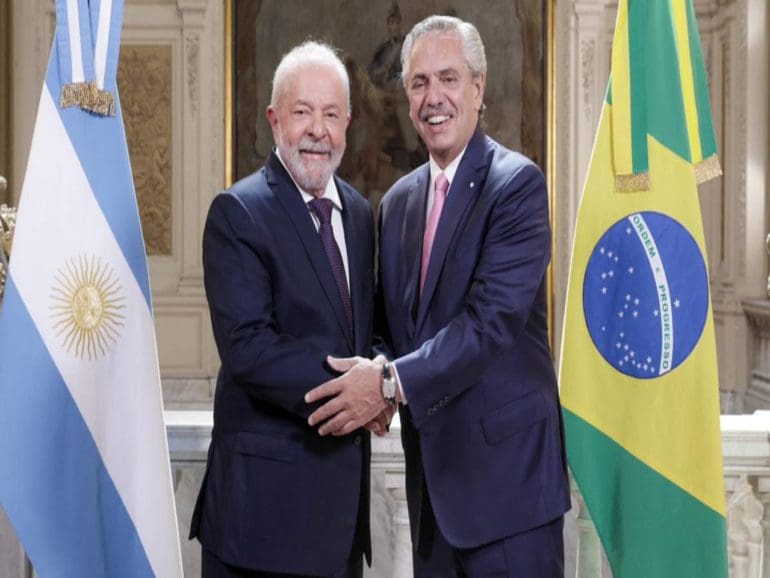Presidents of Argentina and Brazil surprised markets this week after announcing preparations for a common currency between both countries.
Although the idea of a euro-like currency was quickly dismissed, both governments will work on a new currency to clear trade among South America’s two largest economies.
Speaking at a CELAC summit in Buenos Aires, presidents Lula da Silva and Alberto Fernandez said it was high time countries reduced their dependency on US dollars to trade. They were hopeful that other Latin American peers would eventually follow, although the proposition has been met with doubts from an early start.
“We instructed our finance ministers to propose foreign trade and transactions between the two countries that are done in a common currency,” Lula said, as the Brazilian president is known. “I think this will happen with time, and it is necessary because there are countries that sometimes have difficulty acquiring dollars.”
The idea to design a new mechanism to settle bilateral trade is grounded on Argentina’s dire state of the economy and the restrictions that plague importers. A low level of US dollar reserves has led the Argentine government to tighten its grip on foreign purchases severely.
A common currency like the Euro is not on the cards
At any rate, although analysts reckon there is common ground for increasing trade, most have rendered the idea of a single currency unlikely. It would take major economic coordination throughout decades.
“The first thing that one should establish to even think of a common currency between Argentina and Brazil is a greater economic policy coordination,” Dante Sica, a former Production Minister in Argentina, told Fintech Nexus. “Unfortunately, Mercosur has failed (to achieve so) in the last thirty years.”
“It’s merely a political statement,” he said.

From Venezuela, the head of government Nicolás Maduro echoed the news from Buenos Aires, celebrating the decision. A currency union that covered all of Latin America would represent about 5% of global GDP, while the euro encloses about 14% of the world’s output.
A battered Argentine economy
Skepticism among economists is grounded on the fact that Argentina is a much more fragile economy than Brazil. The inflation rate is running at roughly 100% per year, and the local currency, the Argentine peso, has seen repeated depreciation through the last decade.
“Argentina needs high inflation to roll on its debt (while) Brazil can’t fund its own fiscal deficits, let alone Argentina,” said Felipe Camargo, senior economist at Oxford Economics. He argued that trade gains would be “minimal” out of this decision.
“It is far from probable,” Mohamed El-Erian, former CEO of Pimco and a market expert, said over social media. “Neither country has the initial conditions to make this succeed. The best this initiative can hope for is that talk creates some political cover for much-needed economic reforms.”
Is there room for crypto?
Some, such as Coinbase CEO Brian Armstrong, suggested cryptocurrency technology could help, sparking further discussions following El Salvador’s experience with bitcoin.
Brazilian and Argentine authorities have given little detail following the announcement, with no timeframe in mind nor specific actions on the agenda.
To be sure, it was not the first time politicians floated the idea of a common currency. Jair Bolsonaro, Brazil’s former president, said in 2019 that he and then-president Mauricio Macri were working on the “peso real.” No progress came out of that.
Related:
- Nubank, LatAm fintechs pivot to profitability pursuit amid rising rates
- LatAm’s Mercado Libre fintech revenue rises by 94%
- Brazil’s Nubank reaches break-even, reports 70 million customers
“We don’t know how a common currency between Brazil and Argentina would work,” Fernandez admitted this week at the summit. “We do know, however, that our economies depend on foreign currencies to be able to trade. That is harmful.”


